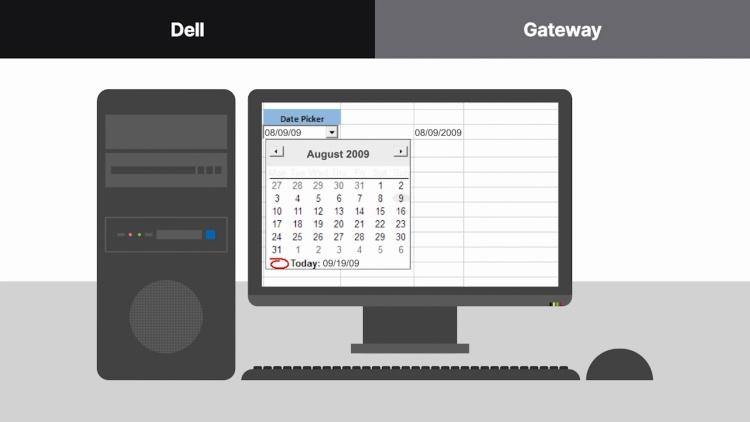Lucent Technologies, Inc. v. Gateway, Inc.
United States Court of Appeals for the Federal Circuit
580 F.3d 1301 (2009)
- Written by Samantha Arena, JD
Facts
Three engineers developed a method of entering data into fields on a computer screen, like on fillable forms, using non-keyboard tools, like date menus. In 1986, the engineers successfully applied for a patent for their invention, called the Day patent. Microsoft (defendant) and Gateway, Inc. (Gateway) (defendant), sold software that utilized non-keyboard tools. Specifically, Microsoft Money, Microsoft Outlook, and Windows Mobile utilized non-keyboard tools for entering data, like date-pickers. Lucent Technologies, Inc. (plaintiff), the eventual owner of the Day patent, sued Gateway. Lucent alleged that Gateway’s software indirectly infringed on the Day patent. Microsoft intervened in the suit. Both parties submitted sample licensing agreements for the jury to use in calculating any damages awards. A jury found that Microsoft had indirectly infringed the Day patent, awarding Lucent approximately $358 million in damages. The jury indicated that its award represented a lump-sum payment of a hypothetical royalty. Among many post-trial motions, Microsoft moved for judgment as a matter of law on both the jury’s verdict of indirect infringement and the jury’s damages award. The district court denied the motion on both issues, and Microsoft appealed.
Rule of Law
Issue
Holding and Reasoning (Michel, C.J.)
What to do next…
Here's why 908,000 law students have relied on our case briefs:
- Written by law professors and practitioners, not other law students. 47,100 briefs, keyed to 997 casebooks. Top-notch customer support.
- The right amount of information, includes the facts, issues, rule of law, holding and reasoning, and any concurrences and dissents.
- Access in your classes, works on your mobile and tablet. Massive library of related video lessons and high quality multiple-choice questions.
- Easy to use, uniform format for every case brief. Written in plain English, not in legalese. Our briefs summarize and simplify; they don’t just repeat the court’s language.





